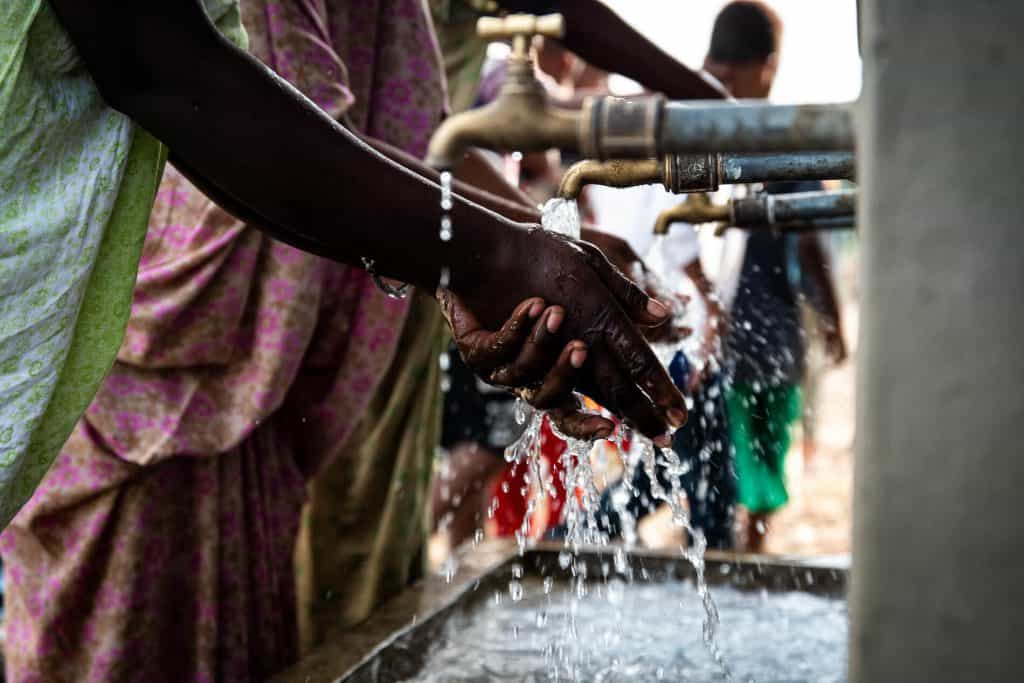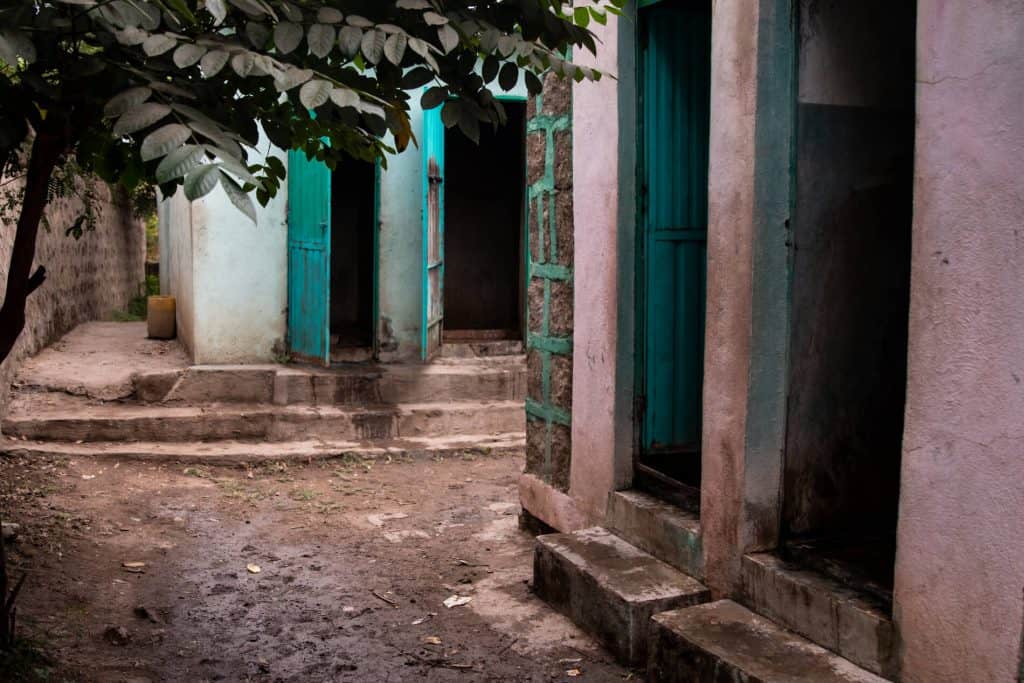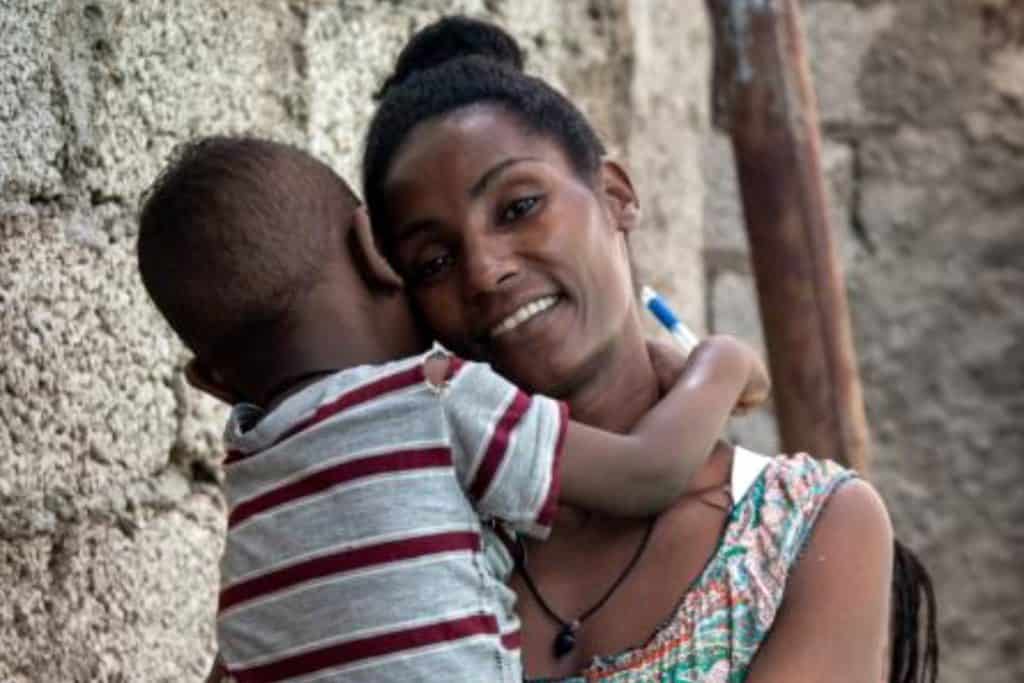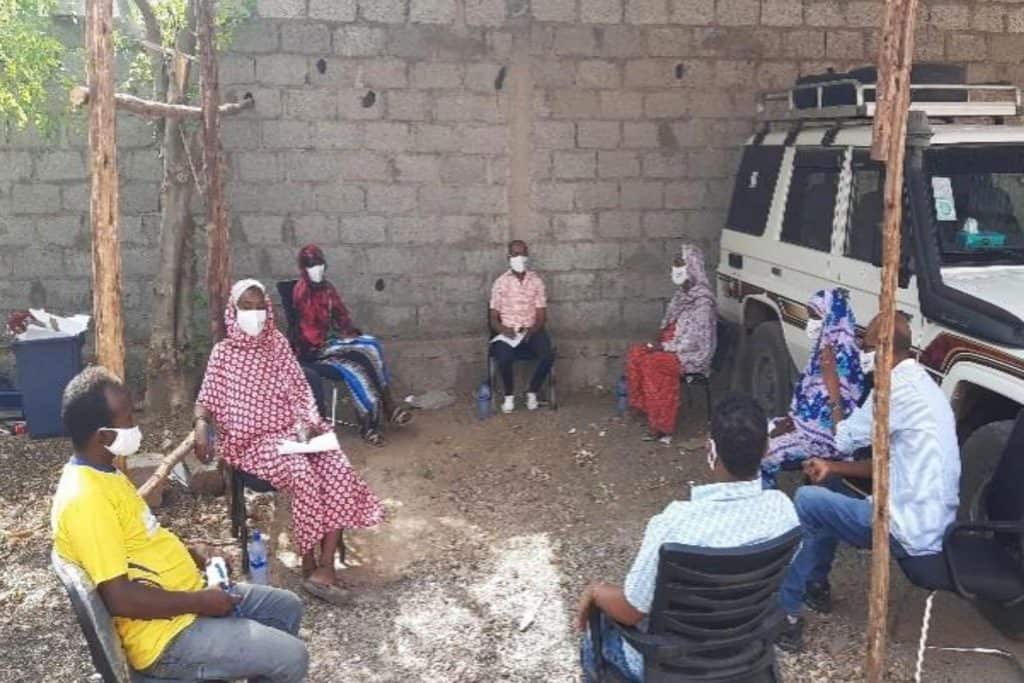Ethiopia update: Unexpected effects
Ethiopia update:
Unexpected effects
We are working hard in Ethiopia to complete this phase of the project by the end of 2020 according to the so-called bicycle model. Corona has an unexpected effect here. Read more about it in this update.

Unexpected effects
Sometimes the Corona crisis also has effects that you cannot imagine in advance. On the one hand, information meetings have been postponed and the budget has been spent differently because masks and other hygiene products had to be installed.
On the other hand, it has resulted in the importance of clean water and good hygiene being also recognized by the government, the local population and the water supply partners. This has resulted in the construction of facilities for washing hands, but also in the essential positive behavioral change around clean water and hygiene.
THE FIETS (BICYCLE) MODEL
To guarantee the sustainability of the realized changes, we also work in this project according to the FIETS (Dutch for bicycle) model, which stands for: Financial, Institutional, Environmental, Technological and Social Sustainability.
The water partners of the government, the people in the slums, the private sector and other partners, all stakeholders have been introduced to this model. It consists of these elements:
- Financial sustainability: the water facilities and infrastructures around waste processing generate income;
- Institutional sustainability: all facilities are managed on a legal and legal basis by men and women on low income. These groups have their own bank accounts, records and roles. They report to the local government for food security and employment. This body also has a controlling role and carries out audits.
- Environmental sustainability: neighborhoods where previously waste was lying around are now clean, which increases the standard of living of many people. In addition, shrubs and trees have been planted in some places.
- Technical durability: all materials and tools used to build the facilities and the consumables are available locally.
- Social sustainability: all new water facilities are specially designed for the standards and values of the end users and are therefore socially accepted. Moreover, all water supply companies were already or have been linked to existing government structures from the start.

Own toilets
From February to June 2020, an intensive campaign was conducted to make the population aware of the importance of clean water and good hygiene, also to prevent the spread of the corona virus. We also taught people to build a simple toilet in their house with a small personal contribution.
We do not do this alone, we work closely with a number of parties such as the Health Development Army (HDA) and Health Extension Workers (HEW), both initiatives of the government. And we work with government health workers.
This has led to the construction of 315 private toilets, realized by the people themselves. A total of 1575 people make use of this. The goal for all of 2020 is to build 354 private toilets. 315 of them have already been built because of the priority given to them by the government due to the outbreak of the corona virus.

The role of women
Girls and women come first in this project. They are actively involved in the planning, implementation, evaluation and management of the project activities in the different project areas. In addition, women are the chairman or vice-chairman of the various associations and committees surrounding the water facilities. We also motivate women and young people to set up sustainable businesses around clean water, sanitation and hygiene.

THE LAST MILE IS THE LONGEST
We have plans to set up a follow-up process in 2021 that will include the lessons learned from this project. In the final phase, we therefore conduct an evaluation to map out the best practices and challenges as well as possible.
We are also still investing in the dialogue and training sessions with the groups that have to maintain the water points that have been postponed due to COVID-19. Although these last steps have been pushed back, they are no less important. So we will certainly ensure that they still take place.
Making water everybody’s business
Since 2016 was have been investing in the five-year health programme ‘Making water everybody’s business’ executed by Amref Health Africa.
The goal is to reach more than 140,000 people in slums and poor neighborhoods in Ethiopia with access to water, sanitation and hygiene education. It concerns the areas of Addis Ababa, Afar and Oromia.
May be you want to read these updates too:
Ethiopia update: Completed succesfully
At the end of 2020, the project Making WASH everybody’s business in Ethiopia was successfully completed. Here you can read everything about the results and the impact of the project.
Read moreThe story of Gadisa Hurisa from Ethiopia
Gadisa spent a lot of money and time fetching clean drinking water. Thanks to Made Blue, she can now save and invest time in development.
Read more